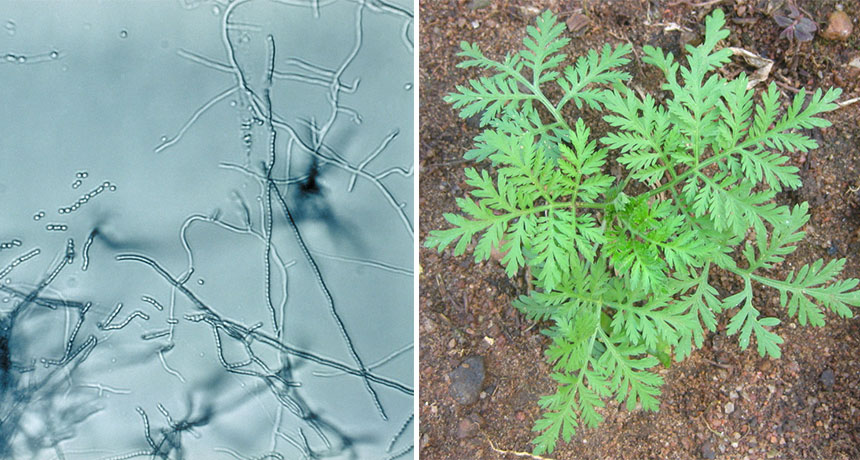Therapies against roundworm, malaria parasites win medicine Nobel

Work done to isolate drugs from Streptomyces bacteria (left) and sweet wormwood (right) that treat parasitic diseases earned the 2015 Nobel Prize in physiology or medicine.
Left: CDC; right: tonrulkens/Flickr (CC BY-SA 2.0)







